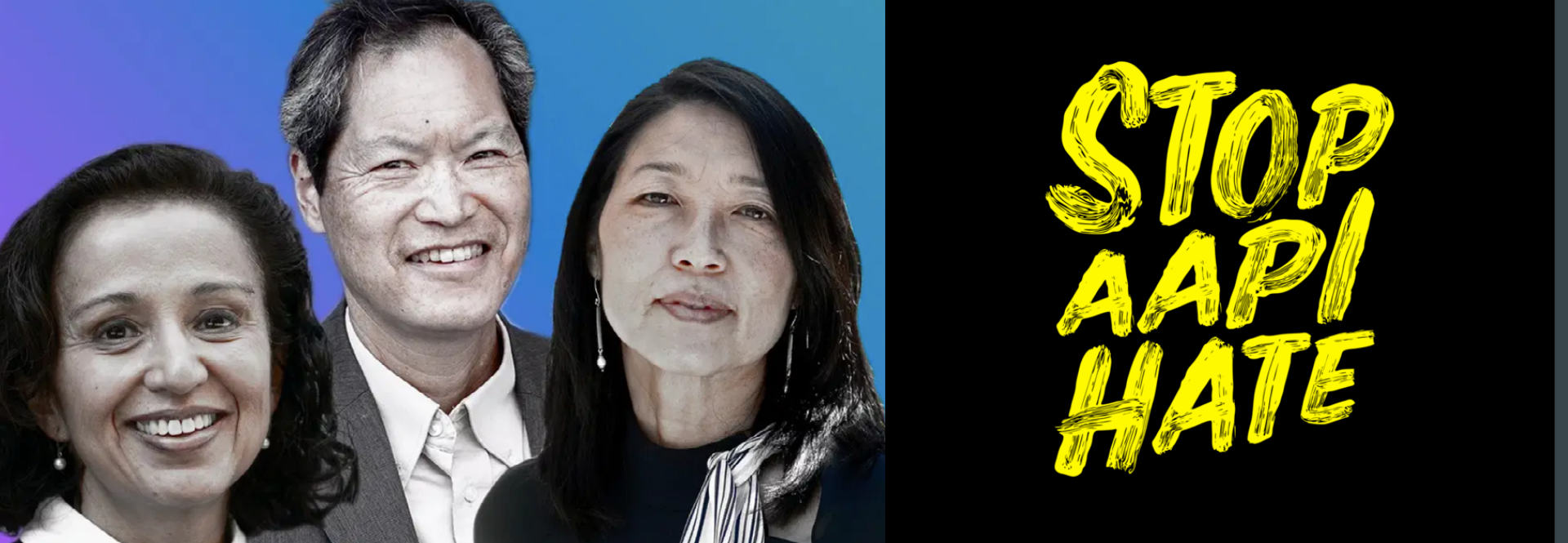
Stop AAPI Hate featured in TIME’s Top 100 Most Influential People of 2021
The organization led the charge of putting AAPI hate on the nation’s radar through hard data and poignant activism.
Between 2020 and 2021, the U.S. witnessed an alarming spike in hate crimes against Asian-Americans, particularly women. Though the risk for violence has been ever present, the pandemic made this population more vulnerable.
A national report by Stop AAPI Hate noted 9,081 incidents of harassment between March 2020 and June 2021. The organization, co-founded and led by Manjusha P Kulkarni, Russel Jeung and Cynthia Choi, has been featured on TIME Magazine’s Time 100 list of the most influential people of 2021.
“As the U.S. has seen a surge in racist, anti-Asian attacks…no coalition has been more impactful in raising awareness of this violence than @StopAAPIHate.” -@cathyparkhong Congratulations to @KulkarniManju, Russell Jeung and @cynthiachoi1 for #TIME100! https://t.co/aCuCS1KaPE
— Nancy Wang Yuen (@nancywyuen) September 16, 2021
Stop AAPI Hate, an online self-reporting tool, was founded last year in the wake of the pandemic that triggered a devastating series of racist attacks against Asian-Americans and Pacific Islanders.
The organization served as an “invaluable resource for the public to understand the realities of anti-Asian racism, but also a major platform for finding community-based solutions to combat hate,” the TIME profile reads.
Kulkarni is an Indian-American activist fighting to end racism against South Asian ethnic communities in the U.S. She currently serves as the Executive Director at Asian Pacific Policy and Planning Council, a coalition of organizations working for the rights of the oppressed.
Kulkarni is an alumna of both Boston and Duke University, and has been recognized by the White House for her efforts in social work, with a focus on health for South Asian communities.
She is an active voice on social media and has spoken out against the use of the term “minority” and “majority” as a descriptor for communities of color.
Collaborating with fantastic researchers like @AnneSawPhD has been one of the most meaningful parts of this work and shows how our community has come together to #StopAAPIHate. https://t.co/eq7YFbmPI6
— Manjusha P. Kulkarni (@KulkarniManju) September 15, 2021
“My identity is NOT based upon my relative percentage of the population,” Kulkarni wrote in a tweet.
Jeung is a professor of Asian American studies at San Francisco State University and has authored several books on race and religion, such as Mountain Movers: Student Activism and the Emergence of Asian American Studies, and At Home in Exile: Finding Jesus Among My Ancestors and Refugee Neighbors.
In an interview with San Francisco State News, Jeung said he was overwhelmed by the recognition because it is not just for him, but others in the same fight.
“It’s for the 9,000 people who reported to Stop AAPI Hate to tell their stories. It’s for people from all walks of life who rallied and pushed for legislation. They also deserve this award,” Jeung said.
RELATED CONTENT
Cynthia Choi is the Co-Executive Director of Chinese for Affirmative Action, a 50-year-old community based on San Francisco civil rights organizations, built to advance economic justice, education equity and immigrant rights.
In a conversation with Elle, Choi said that anti-Asian racism should concern everyone. Choi, Jeung and Kulkarni started Stop AAPI Hate after a colleague of Choi’s shared with her an experience of racial harassment.
“A colleague told me about someone she knew who was followed on their walk to the gym. This person was harassed, spat on and physically threatened. It happened in broad daylight and in front of many people,” Choi said.
We are so proud of Manjusha Kulkarni, Russell Jeung, & Cynthia Choi, co-founders of @StopAAPIHate, for being named some of @Time's 100 most influential people of 2021! Their work on #StopAsianHate organized a country, raised awareness, and saved lives. https://t.co/NQMlA6ii4J
— CAPAC (@CAPAC) September 15, 2021
“It is not acceptable to blame an entire ethnic group or racial group for a global pandemic. This kind of racism can be traced back to a long tradition we have in this country of vilifying immigrants and communities of color,” she continued.
Choi believes in a societal approach to this issue, which includes mental health support for this directly impacted.
Stop AAPI Hate provided a database to document the types of incidents that have long haunted AAPI communities but often go overlooked or unreported by government agencies and the media.
“We are honored to be included in the #TIME100 2021 list. #StopAAPIHate would not be possible without the strength and bravery of our respondents. To all those who have taken a stand against racial justice. Thank you. Your work has not gone unnoticed,” the organization tweeted on Wednesday, Sept. 15.











LEAVE A COMMENT:
Join the discussion! Leave a comment.